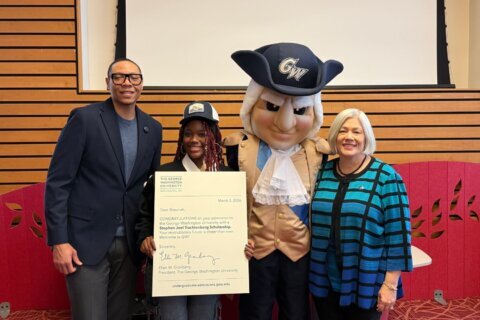WASHINGTON — This week, an annual Texas Transportation Institute report once again found that the D.C. metro region has the worst traffic in the country.
But not everyone agrees with the report’s findings. Transit advocates point out that the report focuses solely on highways and ignores the role mass transit plays in taking cars off the road.
“The annual report from that Texas group is always great for grabbing headlines, but the report itself is flawed, biased and frankly not helpful for D.C., Maryland and Virginia residents,” said Alex Posorske of the Coalition for Smarter Growth.
Posorske said the report does not account for potential congestion avoided by hundreds of thousands of residents who commute via transit, bicycle or their feet.
The transit group points out that millennials are moving to areas like D.C., Arlington, Alexandria, and Tysons in Virginia, and Bethesda, Silver Spring, White Flint, Hyattsville in Maryland–locations where they can use public transit, walk or bike around. Many of these millennials don’t even own cars.
But when you talk about transit, you have to talk about Metro. It is the primary transit option in the region. Even ardent defenders of Metro agree that the agency has had a tough year, and customers are starting to wonder if the system is reliable.
“As a regular Metro rider, I can tell you that three out of every four trips I take are uneventful and relatively on time. That’s not a great percentage, by the way. It’s far short of what a world class system ought to be doing,” said Falls Church Vice Mayor Dave Snyder, who serves on the regional Transportation Planning Board. “But compare that to being on I-95 or I-66, where you’re guaranteed that every day the congestion will be bad, or if there is an accident on top of it, it’ll be even worse,”
Snyder and Posorske agree that the solution to the transportation problems in this region is to offer options. Develop a reliable rail system, enhance the bus network, and continue to build and support walkable and bikeable communities. Snyder said it’s about offering people options and making the alternatives as attractive as possible, then leaving the decision up to the individual.







